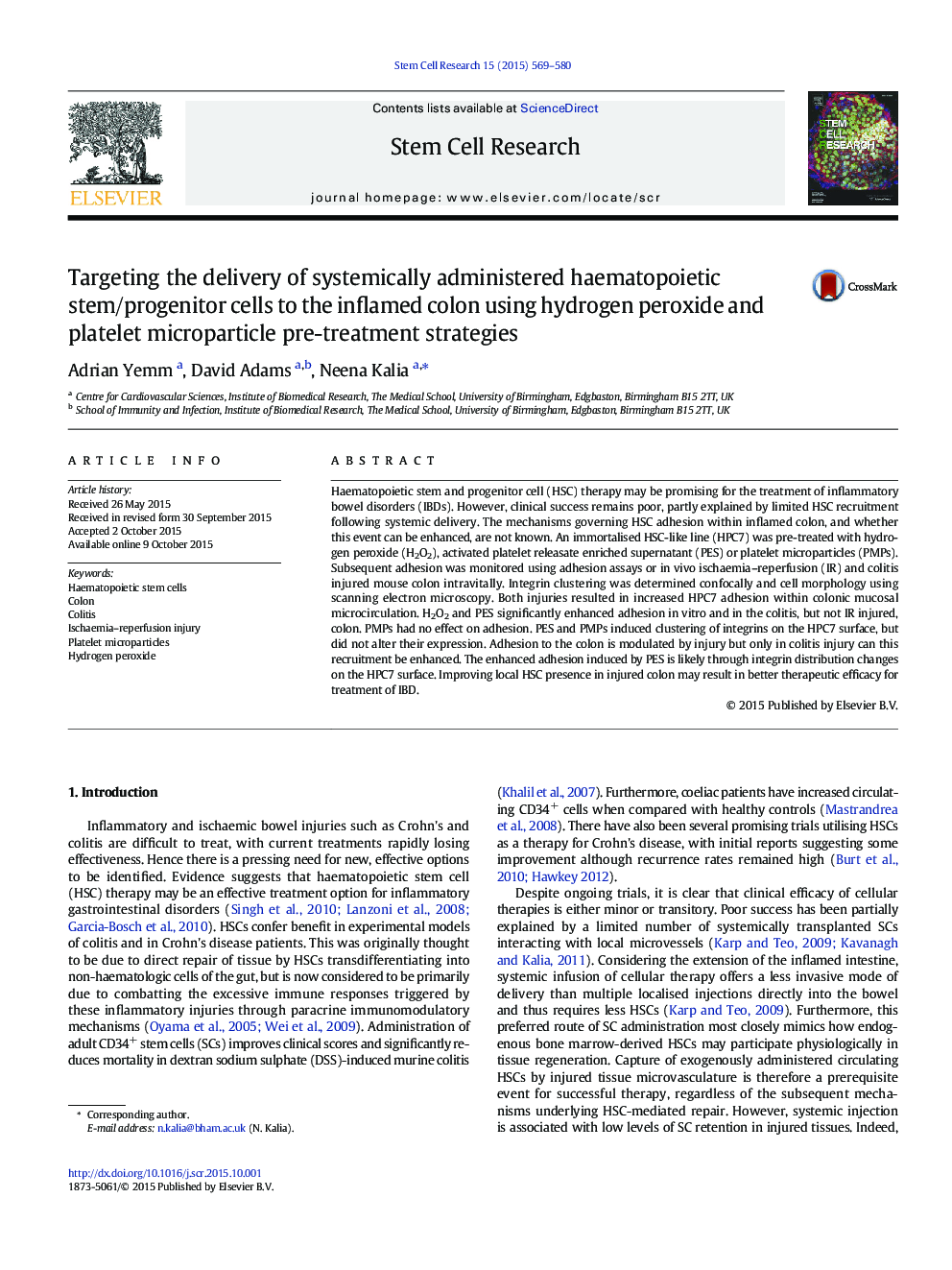| Article ID | Journal | Published Year | Pages | File Type |
|---|---|---|---|---|
| 2093905 | Stem Cell Research | 2015 | 12 Pages |
•HSC recruitment is increased following inflammatory injury to the bowel and is mediated by integrins.•Pre-treatment strategies (H2O2 and platelet derived microparticle solutions) can increase HSC recruitment.•Enhanced, targeted recruitment of stem cells can reduce off target binding effects.•Colonic mucosal blood flow is reduced following DSS-induced colitis and ischemia–reperfusion injury.
Haematopoietic stem and progenitor cell (HSC) therapy may be promising for the treatment of inflammatory bowel disorders (IBDs). However, clinical success remains poor, partly explained by limited HSC recruitment following systemic delivery. The mechanisms governing HSC adhesion within inflamed colon, and whether this event can be enhanced, are not known. An immortalised HSC-like line (HPC7) was pre-treated with hydrogen peroxide (H2O2), activated platelet releasate enriched supernatant (PES) or platelet microparticles (PMPs). Subsequent adhesion was monitored using adhesion assays or in vivo ischaemia–reperfusion (IR) and colitis injured mouse colon intravitally. Integrin clustering was determined confocally and cell morphology using scanning electron microscopy. Both injuries resulted in increased HPC7 adhesion within colonic mucosal microcirculation. H2O2 and PES significantly enhanced adhesion in vitro and in the colitis, but not IR injured, colon. PMPs had no effect on adhesion. PES and PMPs induced clustering of integrins on the HPC7 surface, but did not alter their expression. Adhesion to the colon is modulated by injury but only in colitis injury can this recruitment be enhanced. The enhanced adhesion induced by PES is likely through integrin distribution changes on the HPC7 surface. Improving local HSC presence in injured colon may result in better therapeutic efficacy for treatment of IBD.
